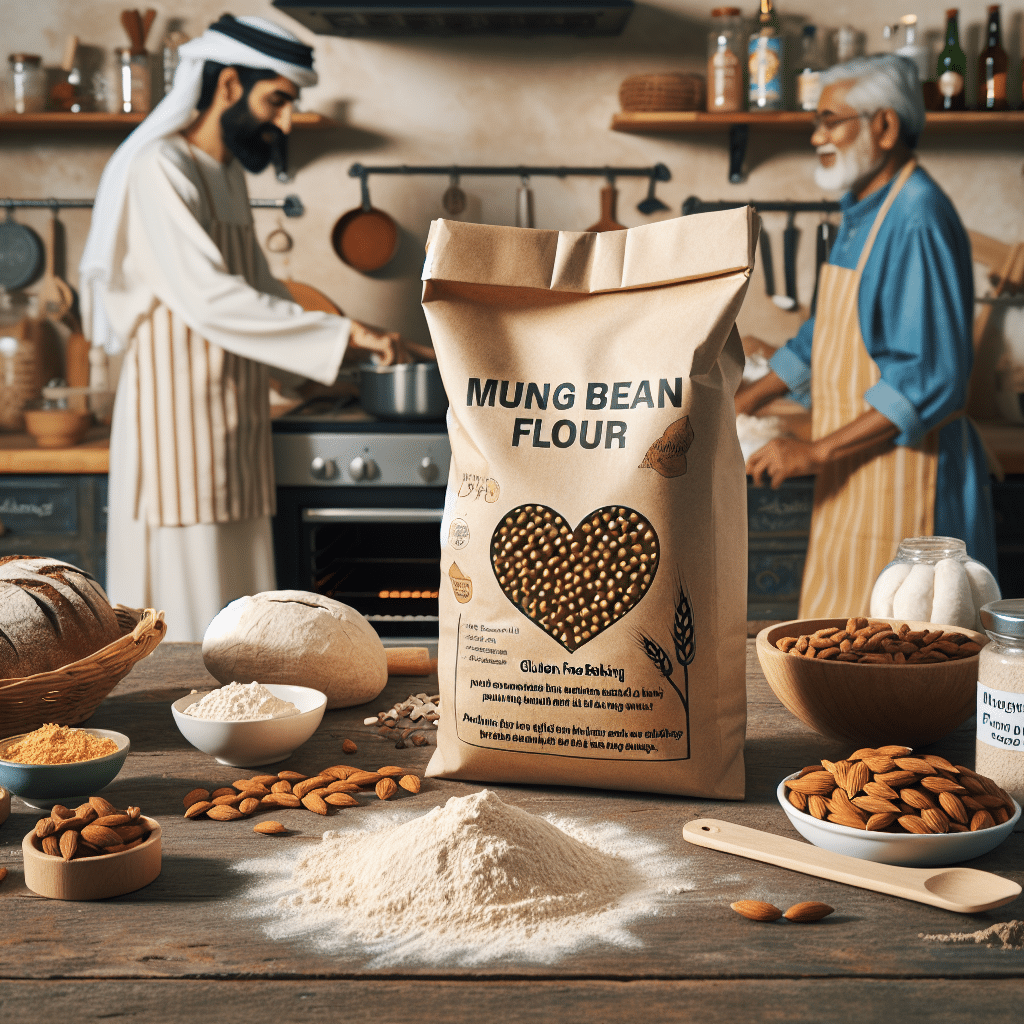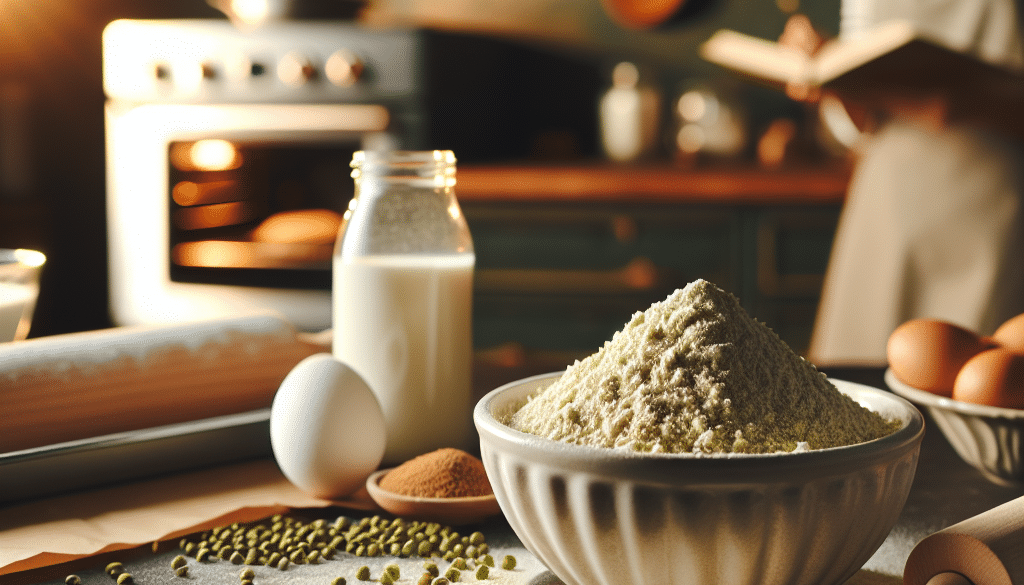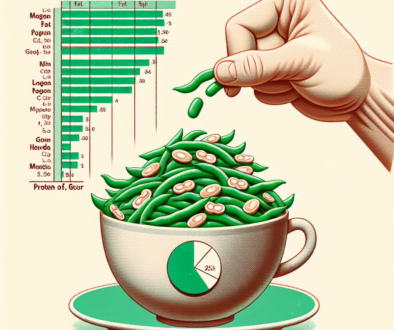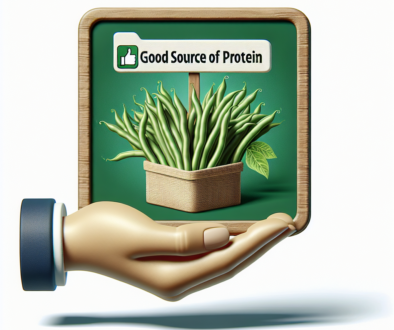Mung Bean Flour: Gluten-Free Baking
-
Table of Contents
- Mung Bean Flour: The Secret to Gluten-Free Baking Success
- Understanding Mung Bean Flour
- The Nutritional Edge of Mung Bean Flour
- Gluten-Free Baking with Mung Bean Flour
- Texture and Consistency
- Flavor Profile
- Moisture Retention
- Successful Recipes with Mung Bean Flour
- Case Studies and Statistics
- Challenges and Solutions in Gluten-Free Baking with Mung Bean Flour
- Conclusion: Embracing Mung Bean Flour in Gluten-Free Baking
- Discover ETprotein’s Premium Protein Products
Mung Bean Flour: The Secret to Gluten-Free Baking Success

Gluten-free baking has become a necessity for many and a choice for even more. With the rise of celiac disease, gluten sensitivities, and health-conscious diets, finding suitable alternatives to traditional wheat flour is paramount. Mung bean flour emerges as a promising substitute, offering not only a gluten-free solution but also a host of nutritional benefits. This article delves into the world of mung bean flour, exploring its advantages, applications in baking, and how it stands as a game-changer in the gluten-free arena.
Understanding Mung Bean Flour
Mung bean flour is derived from ground mung beans, a legume widely cultivated in India, China, and Southeast Asia. Known for its mild flavor and fine texture, mung bean flour is a staple in Asian cuisine, often used in desserts and noodles. Its recent surge in popularity in Western markets is attributed to its gluten-free property and rich nutritional profile.
The Nutritional Edge of Mung Bean Flour
- High Protein Content: Mung bean flour is an excellent source of plant-based protein, making it ideal for vegetarians, vegans, and those looking to increase their protein intake.
- Fiber-Rich: It is high in dietary fiber, which aids in digestion and promotes a feeling of fullness, contributing to weight management.
- Low in Fat: Mung bean flour has a low-fat content, which can be beneficial for heart health and those monitoring their fat intake.
- Vitamins and Minerals: It is packed with essential vitamins and minerals such as potassium, magnesium, folate, and B vitamins.
- Antioxidant Properties: Mung beans contain antioxidants that help combat oxidative stress and may reduce the risk of chronic diseases.
Gluten-Free Baking with Mung Bean Flour
Transitioning to gluten-free baking can be challenging, as gluten plays a crucial role in the texture and structure of baked goods. Mung bean flour offers a solution that not only replaces gluten but also enhances the nutritional value of baked items.
Texture and Consistency
Mung bean flour has a fine texture that closely mimics the mouthfeel of traditional wheat flour. Its binding properties help create a desirable consistency in baked goods, making it an excellent choice for cakes, cookies, and bread.
Flavor Profile
With a subtle, slightly sweet flavor, mung bean flour does not overpower the taste of other ingredients. This makes it versatile for a variety of recipes, from savory bread to sweet pastries.
Moisture Retention
One of the challenges in gluten-free baking is preventing dryness. Mung bean flour naturally retains moisture, ensuring that baked goods remain soft and palatable.
Successful Recipes with Mung Bean Flour
Integrating mung bean flour into gluten-free recipes can yield delicious results. Here are some examples where mung bean flour shines:
- Gluten-Free Pancakes: Mung bean flour can create fluffy, light pancakes that are indistinguishable from their wheat-based counterparts.
- Vegetarian Burgers: As a binder, mung bean flour can be used to hold together veggie burger patties while boosting their protein content.
- Healthy Cookies: Mung bean flour’s ability to retain moisture makes it perfect for chewy, gluten-free cookies that don’t crumble.
- Artisan Breads: When combined with other gluten-free flours, mung bean flour can produce artisan bread with a pleasing texture and crust.
Case Studies and Statistics
Several studies have highlighted the benefits of using mung bean flour in gluten-free baking. For instance, research has shown that mung bean flour can improve the texture and nutritional quality of gluten-free bread. Additionally, the global gluten-free products market size was valued at USD 5.6 billion in 2020 and is expected to expand at a compound annual growth rate (CAGR) of 9.2% from 2021 to 2028, indicating a growing demand for gluten-free alternatives like mung bean flour.
Challenges and Solutions in Gluten-Free Baking with Mung Bean Flour
While mung bean flour is a promising ingredient, it does present some challenges in gluten-free baking:
- Binding Issues: Without gluten, baked goods may lack structure. Combining mung bean flour with xanthan gum or psyllium husk can provide the necessary binding.
- Flavor Adaptation: Some may find the taste of mung bean flour unfamiliar. Gradually incorporating it into recipes can help the palate adjust.
- Availability: Mung bean flour may not be as readily available as other flours. However, its growing popularity is leading to increased presence in health food stores and online retailers.
Conclusion: Embracing Mung Bean Flour in Gluten-Free Baking
Mung bean flour is a versatile, nutritious, and gluten-free alternative that is transforming the baking industry. Its ability to mimic the texture and taste of traditional wheat flour while offering additional health benefits makes it an excellent choice for those with dietary restrictions or anyone seeking healthier baking options. As the demand for gluten-free products continues to rise, mung bean flour is poised to become a staple in kitchens around the world.
Discover ETprotein’s Premium Protein Products
For those interested in incorporating high-quality protein into their diets, ETprotein offers a range of organic bulk vegan protein and plant proteins. Their mung bean protein is an excellent addition to gluten-free baking, providing a neutral taste and allergen-free benefits. ETprotein’s commitment to non-GMO, high-quality products makes them a top choice for consumers and manufacturers alike.
About ETprotein:
ETprotein, a reputable protein Chinese factory manufacturer and supplier, is renowned for producing, stocking, exporting, and delivering the highest quality organic bulk vegan protein and plant proteins. They include Organic rice protein, clear rice protein, pea protein, clear pea protein, pumpkin seed protein, sunflower seed protein, mung bean protein, etc. Their offerings, characterized by a neutral taste, non-GMO, allergen-free attributes, cater to a diverse range of industries. They serve nutraceutical, pharmaceutical, cosmeceutical, veterinary, as well as food and beverage finished product distributors, traders, and manufacturers across Europe, USA, Canada, Australia, Thailand, Japan, Korea, Brazil, and Chile, among others.
ETprotein specialization includes exporting and delivering tailor-made protein powder and finished nutritional supplements. Their extensive product range covers sectors like Food and Beverage, Sports Nutrition, Weight Management, Dietary Supplements, Health and Wellness Products, and Infant Formula, ensuring comprehensive solutions to meet all your protein needs.
As a trusted company by leading global food and beverage brands and Fortune 500 companies, ETprotein reinforces China’s reputation in the global arena. For more information or to sample their products, please contact them and email sales(at)ETprotein.com today.












